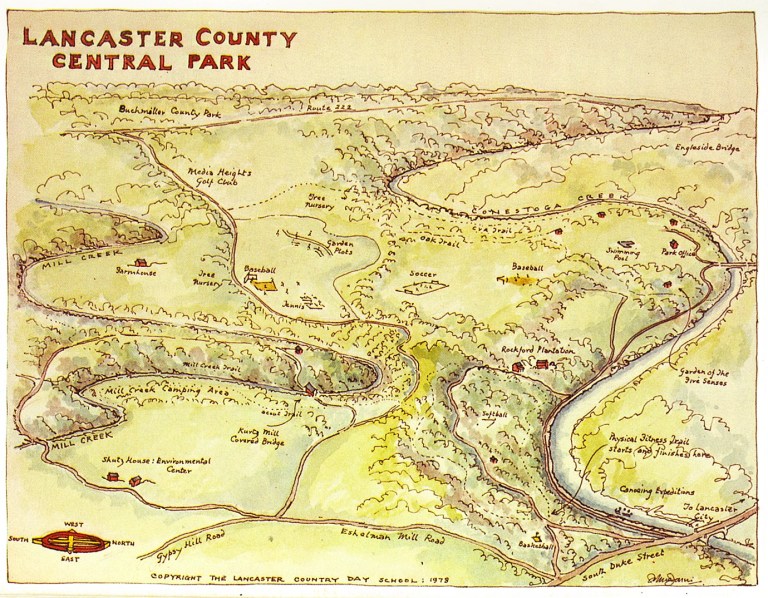Middle Managers: The Unsung Heroes Of Business Success

Table of Contents
The Bridge Between Leadership and Employees
Middle managers act as the vital communication conduit between senior leadership and the workforce. Their ability to effectively translate strategic goals into actionable plans and relay feedback upwards is paramount to organizational success.
Effective Communication and Information Flow
Effective communication is the cornerstone of successful middle management. It involves clear and consistent information dissemination, active listening, and addressing communication barriers.
- Examples of effective communication strategies: Regular team meetings, clear and concise email communication, one-on-one check-ins, and the utilization of project management software for transparent updates.
- Importance of active listening: Creating a safe space for employees to share concerns and feedback, demonstrating empathy, and understanding different communication styles.
- Overcoming communication barriers: Identifying language barriers, cultural differences, and technological limitations, and implementing strategies to ensure effective communication across all levels.
Effective communication skills are crucial for employee engagement, fostering a sense of belonging and shared purpose. This is achieved through active listening, responsive feedback, and transparent information dissemination.
Mentorship and Team Development
Beyond communication, middle managers are vital in mentoring and developing their teams. They nurture talent, foster a positive work environment, and identify high-potential employees.
- Techniques for effective mentorship: Providing regular feedback, offering opportunities for growth and development, acting as a coach and guide, and empowering employees to take ownership of their work.
- Fostering a positive work environment: Promoting collaboration, recognizing achievements, addressing conflicts constructively, and creating a culture of respect and inclusivity.
- Identifying and nurturing talent: Recognizing potential in team members, providing opportunities for skill development, and advocating for their advancement within the organization.
Successful middle management cultivates a team-oriented approach, resulting in improved team leadership and significant contributions to employee development and talent management.
Driving Operational Efficiency and Productivity
Middle managers are the engine room of operational efficiency and productivity. They implement high-level strategies, monitor progress, and solve problems proactively.
Implementing Strategies and Monitoring Progress
Middle managers translate high-level strategic goals into practical, actionable tasks for their teams. They utilize project management techniques to track progress, make necessary adjustments, and ensure timely completion.
- Examples of project management techniques: Agile methodologies, Gantt charts, Kanban boards, and regular progress reports.
- Performance tracking methods: Key Performance Indicators (KPIs), regular performance reviews, and utilizing data analytics to monitor team performance and identify areas for improvement.
- Strategies for improving team efficiency: Streamlining workflows, automating tasks, eliminating bottlenecks, and fostering a culture of continuous improvement.
These skills directly impact project management and process improvement, leading to significant productivity enhancement.
Problem-Solving and Decision-Making
Middle managers are constantly faced with challenges and require strong problem-solving and decision-making skills. They must identify problems, analyze potential solutions, and make timely decisions within their authority.
- Examples of effective problem-solving frameworks: Root cause analysis, brainstorming, and the five whys technique.
- Strategies for conflict resolution: Mediation, negotiation, and fostering open communication to address disagreements effectively.
- Importance of decisive action: Making timely decisions based on available information, even when faced with incomplete data or pressure.
These problem-solving skills and decisive decision-making capabilities are essential for effective management and critical thinking within the organization.
Fostering a Positive and Productive Work Environment
Middle managers are pivotal in shaping a positive and productive work environment. They motivate employees, promote collaboration, and address concerns.
Employee Motivation and Engagement
Middle managers play a critical role in boosting employee morale and engagement. They recognize accomplishments, address employee concerns, and foster a sense of purpose.
- Strategies for fostering employee engagement: Regular feedback, opportunities for professional development, team-building activities, and creating a culture of recognition and appreciation.
- Recognizing accomplishments: Celebrating successes, both big and small, to motivate and encourage employees.
- Addressing employee concerns: Providing a safe space for employees to voice concerns, actively listening, and seeking solutions to address workplace issues.
This fosters employee motivation and contributes to a positive workplace culture, leading to improved team morale.
Promoting Collaboration and Teamwork
Middle managers facilitate collaboration and teamwork by fostering a sense of shared purpose, promoting open communication, and resolving conflicts constructively.
- Techniques for promoting team cohesion: Team-building activities, regular team meetings, and fostering a culture of mutual respect and support.
- Conflict resolution strategies: Mediation, negotiation, and establishing clear guidelines for conflict resolution.
- Fostering a collaborative work environment: Encouraging open communication, knowledge sharing, and mutual support among team members. This improves interdepartmental communication and teamwork.
Conclusion
Middle managers are the unsung heroes of business success. They are the vital connectors, driving operational efficiency, and cultivating positive work environments. Their contributions to communication, team development, problem-solving, and employee engagement are crucial for achieving organizational goals. Recognize the invaluable contributions of your middle managers and invest in their development to unlock your business's full potential. Empowering your mid-level managers is key to building a high-performing organization. Invest in training opportunities for your middle managers, recognize their achievements publicly, and foster open and transparent communication channels. By doing so, you’ll significantly enhance managerial effectiveness and contribute to the overall success of your business.

Featured Posts
-
 Us Export Controls A Failure Says Nvidias Jensen Huang Praising Trump
May 22, 2025
Us Export Controls A Failure Says Nvidias Jensen Huang Praising Trump
May 22, 2025 -
 Ai Startup Cohere Sales Doubled This Year
May 22, 2025
Ai Startup Cohere Sales Doubled This Year
May 22, 2025 -
 Tuerkiye Nin Nato Daki Yuekselen Rolue Ittifakin Gelecegini Sekillendirecek Mi
May 22, 2025
Tuerkiye Nin Nato Daki Yuekselen Rolue Ittifakin Gelecegini Sekillendirecek Mi
May 22, 2025 -
 Tikkie Gebruiken In Nederland Een Complete Handleiding
May 22, 2025
Tikkie Gebruiken In Nederland Een Complete Handleiding
May 22, 2025 -
 Core Weave Crwv Stock Soars Analyzing Last Weeks Performance
May 22, 2025
Core Weave Crwv Stock Soars Analyzing Last Weeks Performance
May 22, 2025
Latest Posts
-
 Loose Cows Spotted Near Lancaster County Park
May 22, 2025
Loose Cows Spotted Near Lancaster County Park
May 22, 2025 -
 Pilot Son Released From Burn Center After Lancaster County Crash
May 22, 2025
Pilot Son Released From Burn Center After Lancaster County Crash
May 22, 2025 -
 Lancaster County Park Cow Escape Location And Updates
May 22, 2025
Lancaster County Park Cow Escape Location And Updates
May 22, 2025 -
 Two Loose Cows In Lancaster County Park What We Know
May 22, 2025
Two Loose Cows In Lancaster County Park What We Know
May 22, 2025 -
 York County Pa Firefighters Battle Two Alarm Blaze Home A Total Loss
May 22, 2025
York County Pa Firefighters Battle Two Alarm Blaze Home A Total Loss
May 22, 2025
